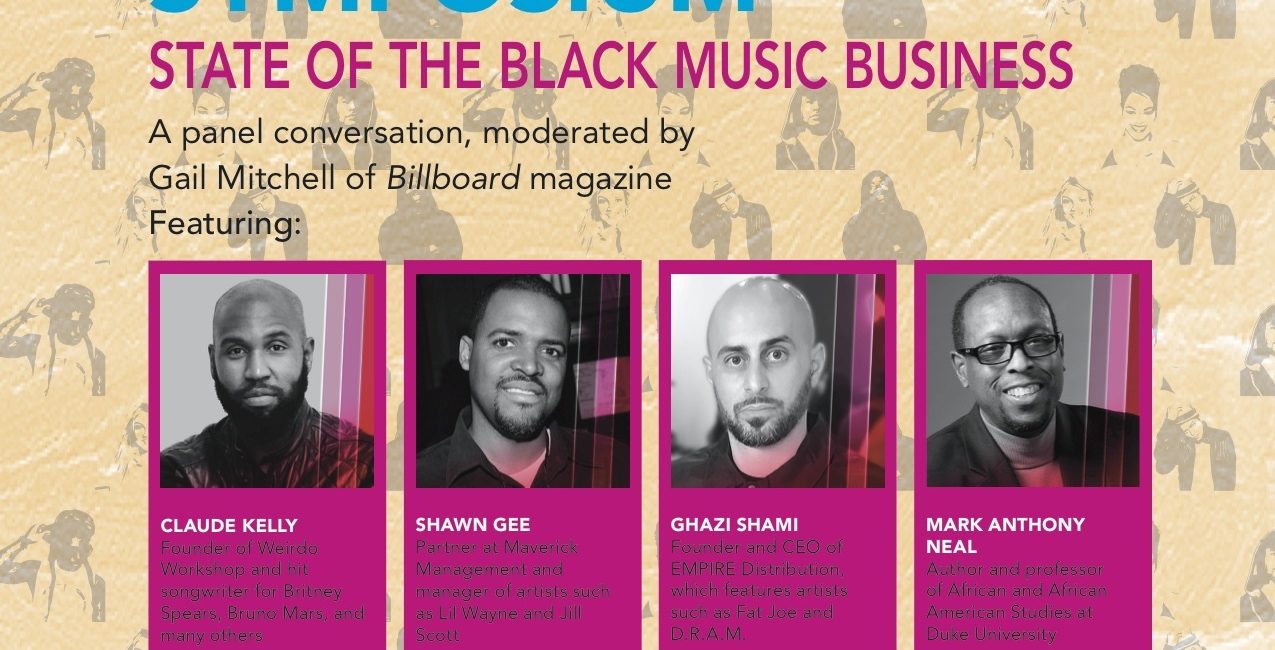
Nicki Minaj.
The Roots.
Lil’ Wayne.
They’re more than just popular musicians; they’re practically household name in America, people you’re more apt to know from their commercials, their movies or the tabloid headlines than you are from any music they’ve put out.
But how did they get to where they are. It’s more than just talent; they’ve managed to conquer the music industry as well as the airwaves. And they’re the lucky ones, because for every Jay Z, Beyoncé or Prince, there are dozens of talented Black musicians making great music – rap music, soul music, R&B music — that you may never hear because the industry – and the public — isn’t doing enough to find ad promote them.
With hope, and a little bit of help from an upcoming panel at Berklee, that could all change. On Oct. 4, the college will host its 10th annual Business of Hip-Hop/Urban Music Symposium, featuring a panel discussion on the State of The Black Music Business.
The state of black music is a hot topic these days. From the ‘70s through the ‘90s, black music sales and airplay dominated the charts and radio playlists. In a recent op-ed piece, award-winning music executive David Linton noted, “In 1994 there were no less than 30 black executives in decision-making positions at various major labels…managing…an important cost center inside the record label. Today it’s a very different industry. Whites are running black music…”
Currently, most artists are having a difficult time making a living in their field. However, hip-hop and R&B are the biggest genres for the rapidly emerging digital streaming format, accounting for nearly 30% of on-demand audio streams, out-pacing rock (20%) and pop (15%) and touting some the biggest names in music, including Drake, Kanye West, Chance the Rapper, Frank Ocean, and Rihanna. In the estimation of industry veteran Ramon Hervey II, “Black artists…need to aggregate and build their fan bases via social media to further enhance their brand awareness so that it can be monetized.”
Gail Mitchell, senior editor at Billboard Magazine who will serve as moderator at the panel discussion, agrees. “The scene for Black musicians is still very vibrant. There’s a lot of great music being made, but not a lot of it is getting heard or being made available in a way that the public can easily find it,” she said in an interview with Color Magazine. “I have friends who are Usher fans and they didn’t even know Usher had a new album come out. There’s something really wrong with that. Artists and the industry just don’t go out and work the new album releases the way they used to.”
And while artists and their management have to bear some of the blame in terms of promoting their music, Mitchell agrees that things won’t really change until more Blacks are placed in upper management positions at the corporate level to oversee Black music.
“Overall, when you look at the charts, especially the Hip Hop chart, the industry looks like it’s doing well, but there’s room for improvement. We need to flip the script,” Mitchell said. “The industry has become so consolidated, so closed, that it’s virtually impossible for people to break in with new ideas. We have to find a way around it so that Black executives are in charge of putting out Black music.”
Berklee’s Music Business/Management Department presents its 10th Business of Hip-Hop/Urban Music Symposium, featuring a panel discussion, the State of The Black Music Business, moderated by Billboard senior editor Gail Mitchell. The event will be held at the Berklee Performance Center on Tuesday, October 4, at 7:00 pm. Tickets are $8 in advance, $12 day of event, and can be purchased at berklee.edu/bpc or at the BPC Box Office.


